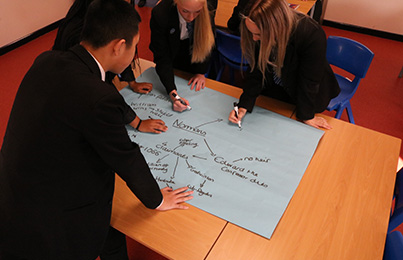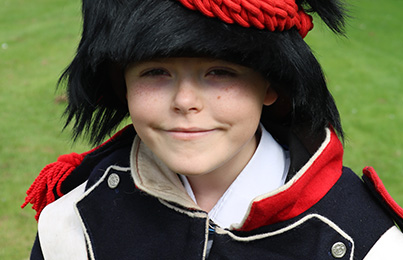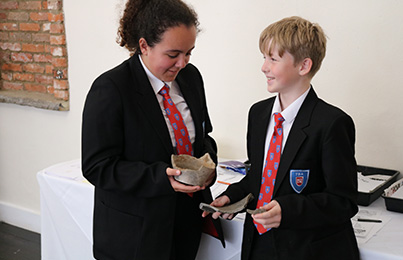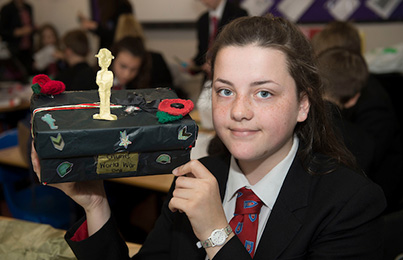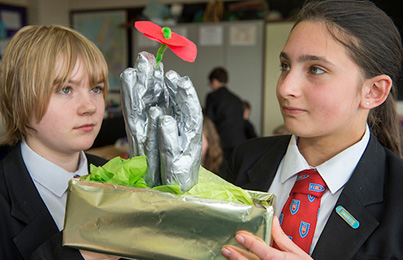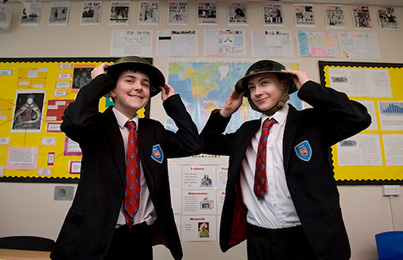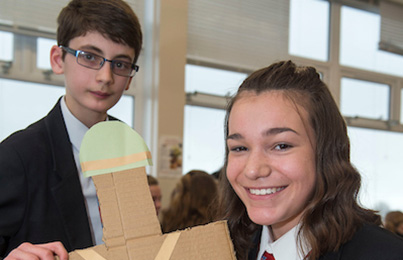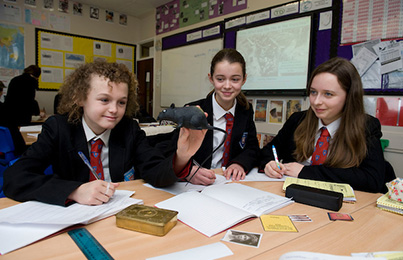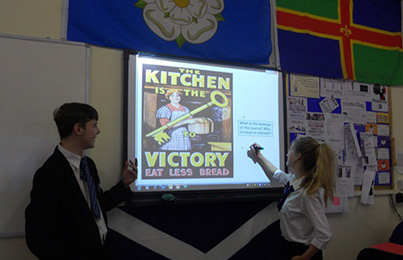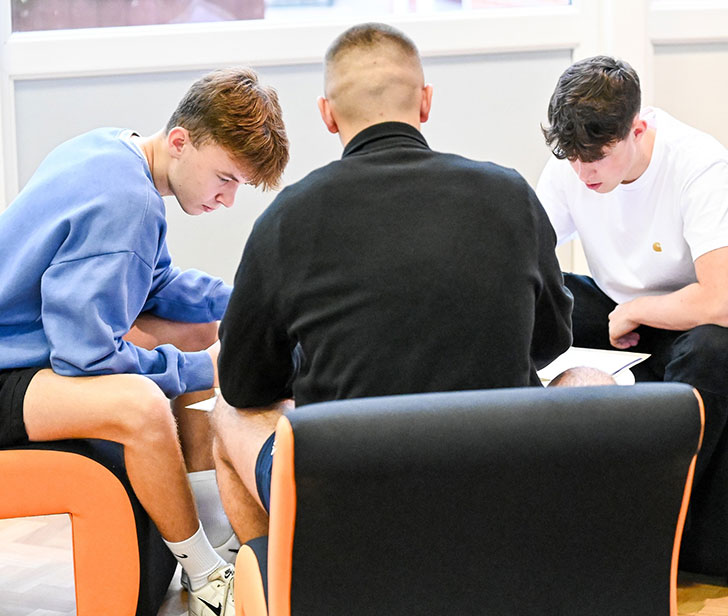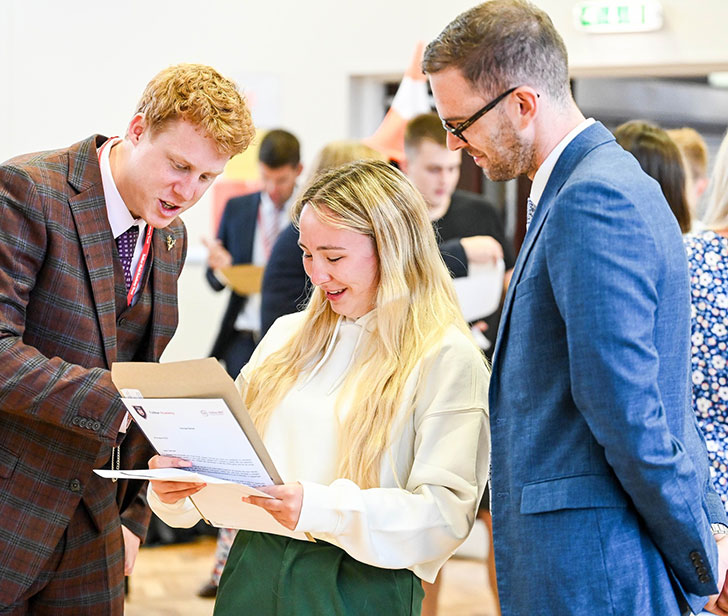History
Curriculum Intent, Implementation & Impact
- History
- Ethos & Values
- Knowledge & Skills
- Resources & Facilities
- Courses & Qualifications
- Learning Outside The Classroom
- Where Does This Take Me In The Future?
History
The History Curriculum Area consistently aims to reinforce the ethos and values of Waltham Toll Bar Academy through high expectations, mutual support, passion for the subject and the constant drive to improve both as historians and as individuals.
Ethos & Values
We aim:
- To enhance children's quality of learning through the effective delivery of the History curriculum ensuring quality provision to all students.
- To raise attainment in History by creating a target-orientated culture based on the enhancement of self-esteem and an ethos of mutual improvement.
- To have consistently high expectations, matched with the dedication of professional, dedicated and knowledgeable staff and match these with high quality resources and learning strategies.
- To link with the wider curriculum, particularly assisting in the provision of improvement of English language skills and usage.
- To provide a range of educational experiences appropriate to the age, ability and needs of our students.
- To adopt a philosophy of continuous improvement in all aspects of the delivery of the subject.
- To maintain and improve upon our high levels of success as a department.
- To develop and consolidate the role of History in the English Baccalaureate qualification.
The History department consistently aims to reinforce the ethos and values of Waltham Toll Bar Academy through high expectations, mutual support, passion for the curriculum area and the constant drive to improve both as historians and as individuals.
Knowledge & Skills
'There is no history of mankind; there is only an indefinite number of histories of all kinds of aspects of human life.' - Karl Popper
History is uniquely placed to offer knowledge and skills that can be applied to the wider world and can be linked to almost all areas of study and personal development. History allows us to:
- Develop and improve upon a knowledge and understanding of key events, individuals and ideas of the past, evaluating and linking them to the present day.
- Explore, investigate and evaluate historical sources, learning how to critically evaluate and analyse them.
- Develop the skills of self-reflection, team work and organisation, and further develop skills that utilise the usage of the English language.
- Develop the ability to understand the world in which we live, together with developing the skills which are essential in many subjects.
- Understand what motivates people and understand what they think and feel.
- Gather and read different kinds of information.
- Investigate information and can check it for bias or propaganda and comment on what the purpose and validity of it is.
- Read maps, graphs and other diagrams.
- To communicate effectively.
We are proud to offer our students the chance to develop and prosper in a way that benefits them for the rest of their lives.
Resources & Facilities
We have a number of dedicated, professional and fully qualified staff, who are passionate about and dedicated to the teaching and enjoyment of History.
We offer dedicated, well equipped and comfortable classrooms, equipped with interactive facilities or a projector and a wide range of quality resources, ranging from excellent detailed textbooks and artefacts to subject specific software.
Courses & Qualifications
Students follow a carefully constructed programme of study at Key Stage 3, with the option of taking GCSE History at Key Stage 4. Increasing numbers of students are choosing History as an option; we expect this to further increase as History is now part of the core of subjects required to achieve the English Baccalaureate qualification.
Key Stage 3
Students have opportunities to explore a wide range of historical eras and issues in an engaging and thought-provoking way. They study from the Romans through to the 20th Century world, covering areas such as Medieval Realms, Tudors and Stuarts, Development of Empire, World War One and World War Two. Students also carry out a thematic study on Crime and Punishment from the Romans to modern day.
Key Stage 4:
In GCSE History, students follow an approved GCSE examination syllabus, leading to a full GCSE qualification at the end of the course in Year 11. Students are assessed wholly via written examination, based on two examination papers:
- Paper 1: Understanding the Modern World
- Paper 2: Shaping the Nation
As part of their course, students will complete a depth study on Germany (1890-1945), a wider world depth study on Conflict and Tension (1918-1939), a thematic study of the British Empire, and a British depth study on Norman England (c1066-1100), including the study of a specified historical site.
Whilst the historical eras and events studied can vary, our History GCSE courses enable all students to do the following:
- Develop and extend their knowledge and understanding of specified key events, periods and societies in local, British, and wider world history - and of the wide diversity of human experience.
- Engage in historical enquiry to develop as independent learners and as critical and reflective thinkers.
- Develop the ability to ask relevant questions about the past, to investigate issues critically and to make valid historical claims by using a range of sources in their historical context.
- Develop an awareness of why people, events and developments have been accorded historical significance and how and why different interpretations have been constructed about them.
- Organise and communicate their historical knowledge and understanding in different ways and reach substantiated conclusions.
Learning Outside The Classroom
At Key Stage 3, we run a popular lunchtime club, giving students the opportunity to investigate aspects of history that they find particularly interesting, in a lively and creative manner.
At Key Stage 4, our students have frequent opportunities to attend additional revision and support sessions, both at the end of the teaching day and during holiday time. This is a vital aspect of their preparation for their final GCSE examinations.
At Key Stage 5 our students again have frequent opportunities to attend revision sessions, while a programme of extra-curricular activities allows the students to build their historical skills outside the classroom and in their own time.
Where Does This Take Me In The Future?
The study of History enables students to develop skills which are relevant to many different educational and career paths. History is widely regarded as a rigorous and challenging qualification by employers and education providers, and this excellent academic reputation means that students are well equipped for entry into whichever profession they aspire to. As well as developing a broad range of historical and contemporary contextual knowledge, history develops skills of interpretation and analysis useful in all jobs, including high-flying professional careers like politics, law and the media.
History links well with all subjects, but particularly the other Humanities, such as English, Religious Education, Law, Philosophy and Geography.
Some examples of careers that the study of history can lead to are:
Accountancy, Archaeology, Architecture, Broadcasting, Civil Service, Diplomatic Service, Drama, Theatre and the Performing Arts, Media, Teaching, Public Relations, Journalism, Law, Police, Politics, Publishing, Sales and Marketing, Tourism, Town Planning and many more…
